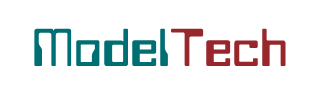The Dataflow Modeller is a multi-platform Graphical User Interface for editing, debugging and analyzing dataflow models. It supports various dataflow formalisms including (Homogeneous) Synchronous Dataflow, Cyclo-Static Dataflow, Boolean Dataflow and Scenario-Aware Dataflow. The Dataflow Modeller can be extended with plugins for Importing, Exporting, Analyzing and Transforming models. The Dataflow Modeller uses the Qt-based C++ libraries to realize deployment on multiple platforms and comes with the GNU Lesser General Public License 3.0.

Features
- Support for Duplicate Names
- Class-Instance Based
- Hierarchical Composition
- Single-Buffer Channels with Multiple Consumers
- Convenient Specification of Auto-Concurreny
- Real-Valued Execution Time(s) (Distributions)
- Mixing of & Conversion between Different Dataflow Formalisms
- Hierarchical Control & Pipelined Reconfiguration of Scenarios
- Probabilistic & Non-Deterministic Interpretation of State-Machines
- Forward and Backward Debugging
- Graphical & Textual Inspection during Debugging
- Extendable through Plugins (Import, Export, Analysis and Transform)
Download Dataflow Modeller
The following links download the Dataflow Modeller with most plugins listed below pre-installed.
 Dataflow Modeller |
Download & Install Plugins
Plugins can easily be installed for the Dataflow Modeller. After downloading and copying as explained below, (re-)start the Dataflow Modeller and the plugin functionality is ready for use.
- Windows: Copy the plugin .dll file to the plugins subfolder of the folder where the dfm.exe executable is located
- Linux: Copy the plugin .so file to the plugins subfolder of the folder where the dfm executable & run.sh script are located
- Mac OS: Copy the plugin .dylib file to the PlugIns subfolder of the Contents folder in the dfm.app bundle
Plugin Name | Description | Other Resources |
|||
|---|---|---|---|---|---|
 Basic Tools | Some basic analysis and transformation tools | ||||
 SDF3 Interoperability | Imports/exports models from/to SDF3 | ||||
 POOSL Export | Exports models to the Parallel Object-Oriented Specification Language (POOSL) | ||||
 PRISM Export | Exports State-Machines in Scenario-Aware Dataflow Models to PRISM Model Checker | ||||
 Causal Block Diagrams Export | Exports Homogeneous Synchronous Dataflow Models as Causal Block Diagrams (Python 2.7) | ||||
 Lustre Export | Exports Synchronous Dataflow Models to Lustre for Kind 2 Model Checker |
Plugin Development Kit
The Dataflow Modeller can be extended with your own plugins for Importing, Exporting, Analyzing and Transforming dataflow models. To assist in the development of such plugins, a development kit is available. This development kit includes Qt-based source code for an example plugin, the C++ libraries of the Dataflow Modeller that are required to compile your plugin (including a doxygen configuration to create documentation) and instructions for deployment and installation.
 Plugin Development Kit for Dataflow Modeller |
Additional Resources
Community
Discuss the Dataflow Modeller on our forum.





